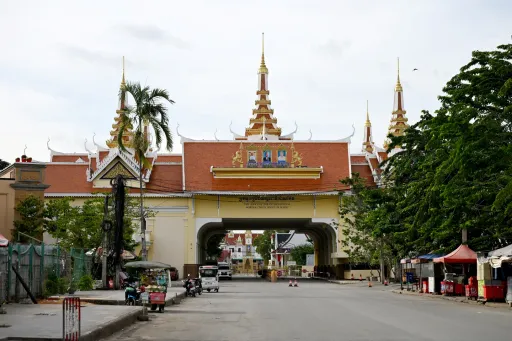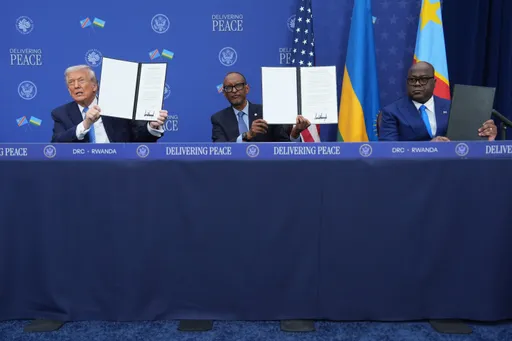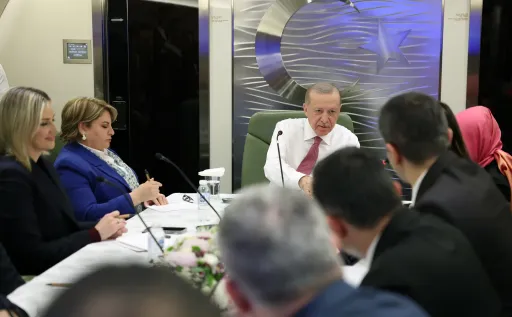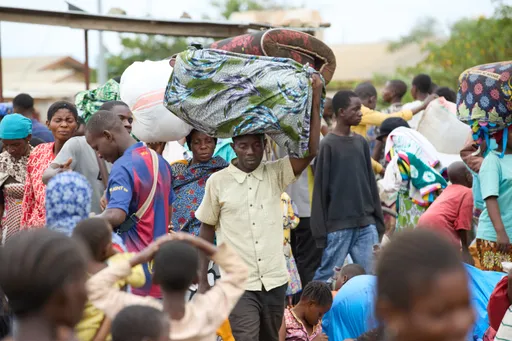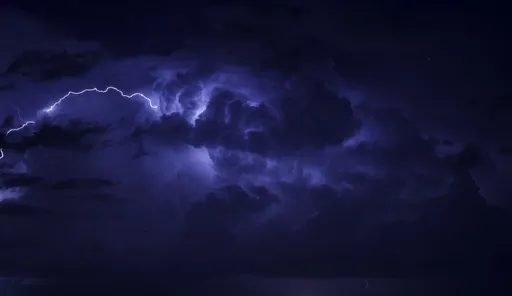By Sylvia Chebet
Having plenty of options in a democracy might seem like an ideal scenario, but it can also lead to what behavioural economists call "choice overload".
South Africa's 17.6 million-strong electorate could face a similar situation when it goes to the hustings on May 29 to elect a new government to build on the gains of three post-apartheid decades.
The Electoral Commission of South Africa has registered 1,743 parties — an astounding figure for any democratic mechanism to manage, much less choose from. The field might have been even larger had 800 other parties not been deregistered and nearly 100 others rejected on technical grounds.
"The platform is crowded," David Monyae, associate professor of political science at the University of Johannesburg, tells TRT Afrika.
He points out that parties formed decades before the end of apartheid in 1994 are jostling for space with fledgling outfits, some barely a year old and still to establish a political foothold.
While a handful of the newer parties may go on to strike roots, Monyae reckons that most of them can be expected to "die immediately after the elections".
So, how can South African voters separate the wheat from the chaff when they step out to cast their ballots?
"The manifestos are more or less similar. Just the style of getting the message across is different," says Monyae.
"The usual topics are mentioned: reviving the economy, cracking down on corruption, resolving issues in education and healthcare, land distribution, and social welfare grants."
With the lines differentiating parties being blurred, experts believe the contest boils down to party popularity.
"Populism is kicking in," says Monyae. "There is a lot of dancing and kissing babies."
Amid the pre-poll roadshows and rhetoric, pollsters are focused on arguably the three most popular parties in South Africa.
African National Congress
ANC has been the ruling party in South Africa since 1994. Founded in 1912, it is the oldest political outfit in the rainbow nation.
"ANC has had its opportunities and achieved milestones, but there are also shortcomings that the party admits, such as not being able to ensure equitable land distribution, the core of the liberation struggle," explains Monyae.
Advocating policies of addressing inequality, eradicating poverty, and promoting social justice, ANC enjoyed massive support in almost every part of the country for most of its 30-year existence.
But over the past decade, corruption scandals involving top leaders, inflation, and soaring unemployment have chipped away at the ruling party's popularity.
"ANC was at the core of a nationalist movement. For any nationalist movement, if we look at it from a global perspective, longevity in power ranges between 30 and 40 years," Monyae tells TRT Afrika.
According to pollsters, the ANC could garner less than 50% of the vote for the first time in 30 years.
Monyae believes that while ANC's association with the liberation struggle is a strong tide that could push it to or closer to the shore, it must be strategic to navigate the storm.
"Some are arguing that even if ANC gets 48% or 47%, the opposition should unite and move to a combined forum. But the opposition is as divided as the governing party," he says.
Also, the prospect of a coalition government is unsettling to many citizens.
"The little that we have seen of coalitions at the level of provincial and local governments, they have been a disaster," says Monyae.
Democratic Alliance
DA is South Africa's main opposition party. Formed in 2000, it advocates liberal democracy, the rule of law, and a market-driven economy, all of which have helped it gain traction in some urban areas.
"DA is an offshoot of the old white Democratic Party," Monyae points out. "It has managed to win over the so-called coloured community in Western Cape Province but struggles to gain votes within the black community."
Economic Freedom Fighters
EFF is an ANC offshoot founded in 2013 by former ANC Youth League President Julius Malema.
The party advocates radical changes to South Africa's economic policies, including nationalising industries and land expropriation without compensation.
"Even though it's part of the opposition ideologically, it doesn't differ from ANC," Monyae says. "One would see it more as the radical element of ANC."
Besides the youth, the party has quickly gained popularity among those disillusioned with the traditional political establishment.
"It might be neck and neck with DA in terms of support," says Monyae.
Cluster of challengers
Other notable parties in South Africa's crowded political landscape include the Inkatha Freedom Party (IFP), Freedom Front Plus (FF+), United Democratic Movement (UDM), Pan Africanist Congress of Azania (PAC), African Christian Democratic Party (ACDP), and Socialist Revolutionary Workers Party (SRWP).
While smaller than the established trio, analysts believe these parties contribute to the vibrant and diverse political discourse in the rainbow nation.
Among the newcomers, Arise South Africa, Rise Mzansi and uMkhonto WeSizwe (MK) are a long way from proving their impact and endurance.
MK, a breakaway faction of the ruling party, fielded former President Jacob Zuma as its candidate, but South Africa's constitutional court ruled on May 20 that the 82-year-old cannot run for Parliamentary election because of his conviction and jail sentence for contempt of court in 2021.
Monyae believes Zuma's presence in the fray was more of an irritant for the ANC and the incumbent, Cyril Ramaphosa, than a serious challenge to the presidency.
➤ Click here to follow our WhatsApp channel for more stories.









